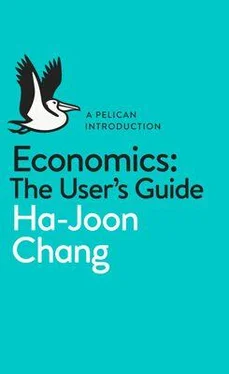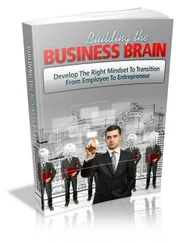Bruce Hood - The Domesticated Brain - A Pelican Introduction (Pelican Books)
Здесь есть возможность читать онлайн «Bruce Hood - The Domesticated Brain - A Pelican Introduction (Pelican Books)» весь текст электронной книги совершенно бесплатно (целиком полную версию без сокращений). В некоторых случаях можно слушать аудио, скачать через торрент в формате fb2 и присутствует краткое содержание. Год выпуска: 2014, ISBN: 2014, Издательство: Penguin Books Ltd, Жанр: Старинная литература, на английском языке. Описание произведения, (предисловие) а так же отзывы посетителей доступны на портале библиотеки ЛибКат.
- Название:The Domesticated Brain: A Pelican Introduction (Pelican Books)
- Автор:
- Издательство:Penguin Books Ltd
- Жанр:
- Год:2014
- ISBN:9780141974873
- Рейтинг книги:4 / 5. Голосов: 1
-
Избранное:Добавить в избранное
- Отзывы:
-
Ваша оценка:
- 80
- 1
- 2
- 3
- 4
- 5
The Domesticated Brain: A Pelican Introduction (Pelican Books): краткое содержание, описание и аннотация
Предлагаем к чтению аннотацию, описание, краткое содержание или предисловие (зависит от того, что написал сам автор книги «The Domesticated Brain: A Pelican Introduction (Pelican Books)»). Если вы не нашли необходимую информацию о книге — напишите в комментариях, мы постараемся отыскать её.
The Domesticated Brain: A Pelican Introduction (Pelican Books) — читать онлайн бесплатно полную книгу (весь текст) целиком
Ниже представлен текст книги, разбитый по страницам. Система сохранения места последней прочитанной страницы, позволяет с удобством читать онлайн бесплатно книгу «The Domesticated Brain: A Pelican Introduction (Pelican Books)», без необходимости каждый раз заново искать на чём Вы остановились. Поставьте закладку, и сможете в любой момент перейти на страницу, на которой закончили чтение.
Интервал:
Закладка:
Another negative emotion related to perceived injustices is jealousy. Jealousy is one of the most corrosive aspects of social development, and it can endure well into adulthood. We do not easily grow out of this mindset as it comes to shape the way we perceive justice in the world. Most industrial disputes are not to do with an individual’s own working conditions and salary but more to do with those of everyone else. Our decisions are driven by the sense of relative comparisons. 60When we learn that other people in our company earn more than us, we are indignant as we perceive this as a devaluation of our own self worth.
If we care so much about our self worth, why do we go out of our way to help or harm others at all? Surely the best strategy is not to expend resources at all. This has been studied in a field of behavioural economics known as game theory , made famous by the Princeton mathematician John Nash (the subject of the Hollywood blockbuster A Beautiful Mind ). Nash studied negotiation situations using mathematics to determine the optimal strategies. One particular game-theory problem, known as the prisoners’ dilemma, led him to conclude that non-cooperation was the best policy. In this game, two suspects are interrogated in separate prison cells and must decide whether or not to inform on each other. The dilemma is that each is offered a deal of freedom if they inform on the other, putting their fellow suspect in jail for six months. If they both inform, then they both get three months. If both prisoners keep quiet, they only get one month apiece. Nash mathematically modelled the prisoners’ dilemma over many repetitions of different responses and concluded that the optimum strategy was to always defect and rat on the other person. 61However, if this is the case, then why do we see cooperation in the natural world, especially amongst humans – a question that dogged Darwin himself?
This has always been a puzzling aspect of cooperation. However, as Richard Dawkins has pointed out in The Selfish Gene , it is not the individual who benefits from these acts of revenge or altruism but rather the genes that shape these social behaviours. 62If genes produce behaviours in individuals that lead to a better fit for the group in the environment, because they generate the best strategy for procreation, these genes will win out and multiply, even though the individual may make sacrifices for the common good.
Another factor when it comes to humans is that we are not mindless vehicles for our genes. Game-theory problems assume that the decisions are made entirely independently, but if prisoners are allowed to communicate, cooperation rather than being selfish wins out as the most successful strategy. 63Most importantly, domestication shapes how we feel about our decisions. We experience a mental and emotional life that motivates us to help or harm others and those reactions are shaped by our interpretations of what is right and wrong; interpretations that come from participating in a culture where we are expected to contribute.
Appeals to the heart
Charities depend on the milk of human kindness, but it turns out that this willingness to help depends on how much we see ourselves related to others. Read the following appeals from two charity campaigns and decide which you would be more likely to donate money to:
A) Any money that you donate will go to Rokia, a seven-year-old girl who lives in Mali in Africa. Rokia is desperately poor and faces a threat of severe hunger, even starvation. Her life will be changed for the better as a result of your financial gift. With your support, and the support of other caring sponsors, Save the Children will work with Rokia’s family and other members of the community to help feed and educate her, and provide her with basic medical care.
B) Food shortages in Malawi are affecting more than three million children. In Zambia, severe rainfall deficits have resulted in a 42 per cent drop in maize production from 2000. As a result, an estimated three million Zambians face hunger. Four million Angolans – one-third of the population – have been forced to flee their homes. More than 11 million people in Ethiopia need immediate food assistance.
Paul Slovic, a University of Oregon psychologist who advises governments and charities, has shown that when cases are presented like this, adults are more likely to give to little Rokia and offer twice as much than to donate to a cause that supports millions. 64The amount they give is directly related to the emotions they experience, indicating that the quickest way to a donor’s pocket is not through the head but through the heart.
Those we relate to more easily trigger our emotions because we can identify with them. This phenomenon, known as the identifiable victim effect (IVE), is well appreciated by numerous charities that use the poster-child strategy to focus a campaign around an individual rather than a group. News media also exploit the IVE to maximize the impact of a story by providing a face and identity to tug at our emotional heartstrings. The public is more likely to rally around the plight of a single victim who can be identified than many unknown victims. You may have noticed the same strategy creeping into politicians’ rhetoric when they illustrate their case with an individual who they describe in ways the public can identify with. It seems that we can more easily empathize and understand the plight of one as opposed to many.
Even though we may be aware that we are being manipulated, we still find it difficult to avoid the IVE. One reason is simply the difficulty of comprehending the suffering of vast numbers. 65As Joseph Stalin once remarked, ‘The death of a single Russian soldier is a tragedy. A million deaths is a statistic.’ When we hear of a mass loss of life we are unable to comprehend it – to get our heads around it. It would appear that we are simply overwhelmed by the numbers. We are much more likely to act when we are faced with one victim or, as Mother Teresa explained, ‘If I look at the mass I will never act. If I look at the one, I will.’
There are a number of possible reasons why we are more likely to help one versus many. For a start, we are sensitive to the numbers involved. We reason that saving ten out of one hundred is more effective than saving ten out of one million. Dealing with many seems daunting and ultimately doomed to failure. With an identifiable victim there is a well-constrained target, one that is achievable. If this were true, then we would be more willing to help a small rather than a large number. However, there is something that rings hollow about the argument based on relative numbers. The IVE drops off rapidly if you increase the number of victims from one to two. Slovic has found that as soon as you introduce Rokia’s brother, ‘Moussa’, sympathy and donations decline significantly. 66This suggests that it is the individual we identify with because we find it easier to empathize with the plight of one person. As we will read later, we are always at the mercy of the group when it comes to our decisions, but we can more easily put ourselves in another’s shoes than imagine the suffering of more than one person.
Gut reactions
Much of our moral reasoning seems to be guided by emotional reactions to what we think is right and wrong. When we consider immoral acts, we may literally feel disgusted and repulsed. Domestication shapes these gut reactions, using them to fuel our sense of moral outrage. For example, homosexuality is tolerated in many societies both today and in the past, which indicates that there is no natural built-in prejudice against same-sex relationships. If children are raised in a society that condemns the practice, they must be assimilating the moral outrage projected by the group as a personal feeling of disgust.
Читать дальшеИнтервал:
Закладка:
Похожие книги на «The Domesticated Brain: A Pelican Introduction (Pelican Books)»
Представляем Вашему вниманию похожие книги на «The Domesticated Brain: A Pelican Introduction (Pelican Books)» списком для выбора. Мы отобрали схожую по названию и смыслу литературу в надежде предоставить читателям больше вариантов отыскать новые, интересные, ещё непрочитанные произведения.
Обсуждение, отзывы о книге «The Domesticated Brain: A Pelican Introduction (Pelican Books)» и просто собственные мнения читателей. Оставьте ваши комментарии, напишите, что Вы думаете о произведении, его смысле или главных героях. Укажите что конкретно понравилось, а что нет, и почему Вы так считаете.











